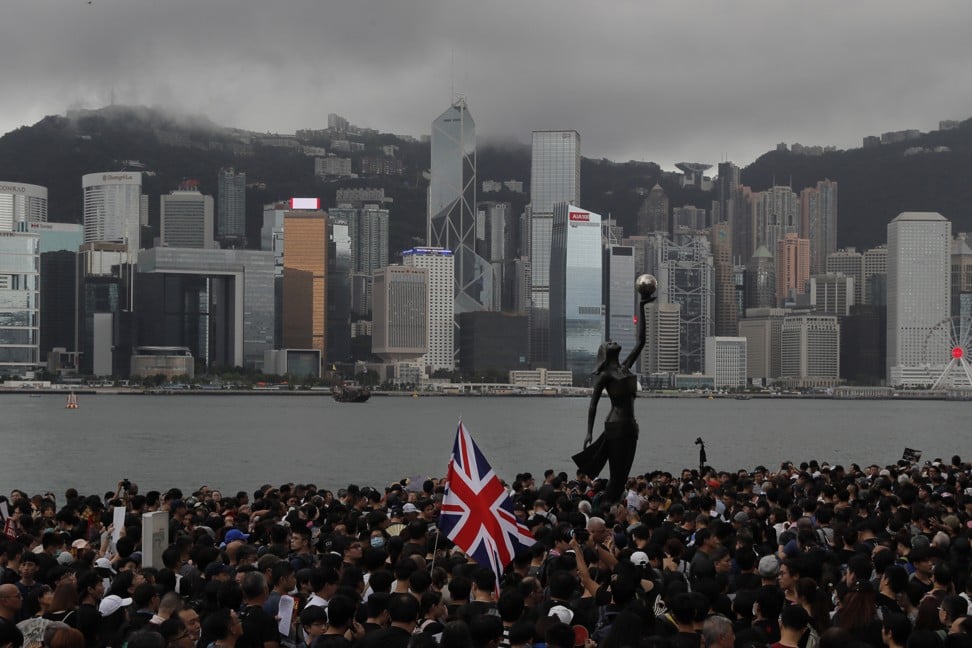
Hong Kong’s protests are rooted in something deeper than the economy or foreign interference: they’re about fear and identity
- A large number of today’s Hongkongers fled from China during the Cultural Revolution, and the protests reflect the trauma felt by them, and their descendants, at the lack of choice about their identity after 1997
Hong Kong is descending into violence, from which return is difficult. To get out of our current quagmire, we need to better understand its origins.
I want to address what I believe are the core drivers behind the present tensions in Hong Kong. I’m talking about the drivers that bring millions of people, young and old, from all walks of life, onto the streets. Ultimately, it’s not “the economy” or the US State Department.
Exposure to this sort of terror leaves deep psychological scars. In the healing work that I have done over the past few decades, I have discovered that the trauma which happens to one generation can be passed down to the next.
It’s important to understand that these reactions are not rational. Quite clearly, the China of today is very different to the China of the 1960s, and the probability of another Cultural Revolution in the near term is extremely low. China’s current situation does not suggest that anything like this is likely to develop in the foreseeable future.
However, if we understand that we’re dealing not with issues that have a present-time rational basis, but the natural result of psychological scars, we have a chance of taking action in an appropriate way to move beyond the current conflict.
Hong Kong police and protesters need to make peace, to end the insanity
The mass of people making up the population of Hong Kong over the past 60-70 years are those who moved here, or their descendants. In moving to Hong Kong over those decades, the people who came here decided (at least unconsciously) to take on a new identity – one specific to Hong Kong.
So, we can say that immigrants (or refugees) that came to Hong Kong from China chose to become “British”. Clearly, it was “British” with special characteristics, because life in Hong Kong is nothing like Britain, but it was also very much “not China”. And this became the identity of Hong Kong people.
Subsequently we had the Joint Declaration and the return of Hong Kong to Chinese sovereignty under the “one country, two systems” concept in 1997. And this, I believe, is where the problems we see today were seeded.
Britain or US might come to Hong Kong’s rescue. And pigs might fly
People whose identity was very much “Hong Kong” or “British”, suddenly found themselves reclassified as Chinese. This was done without their consent. Which meant, in effect, that they had been “sent back” to the place from which they had originally run from in fear.
Britain has a great deal to answer for here, because it could have offered full British citizenship to any Hongkonger who wanted to move to Britain. Those who remained in Hong Kong would be choosing to go back to China.
Britain did not do this, of course, which fundamentally left Hong Kong people in a situation where they feel they have been forced to take up a mainland Chinese identity again – which is something that, in their deep psyche, they had originally rejected for the reasons I stated above. This lack of choice about one’s identity is something that can induce new trauma, or trigger trauma that is already present.
Clearly “”one country, two systems” was designed to overcome this problem. However, the nature of psychological scars is that they can be triggered by the smallest of signals. You will know what I mean if you have ever pushed somebody’s buttons by mistake.
To get beyond the current impasse in Hong Kong, we need to start addressing some of the deeper psychological issues underpinning the craziness we now see. This means getting into meaningful dialogue, characterised by deep listening, and going deep down the rabbit hole until we create the insights we need to get out of the current mess.
Chris Lonsdale is a psychologist, linguist, educator, entrepreneur, dialogue facilitator and corporate adviser with over 30 years’ experience doing business in Asia



